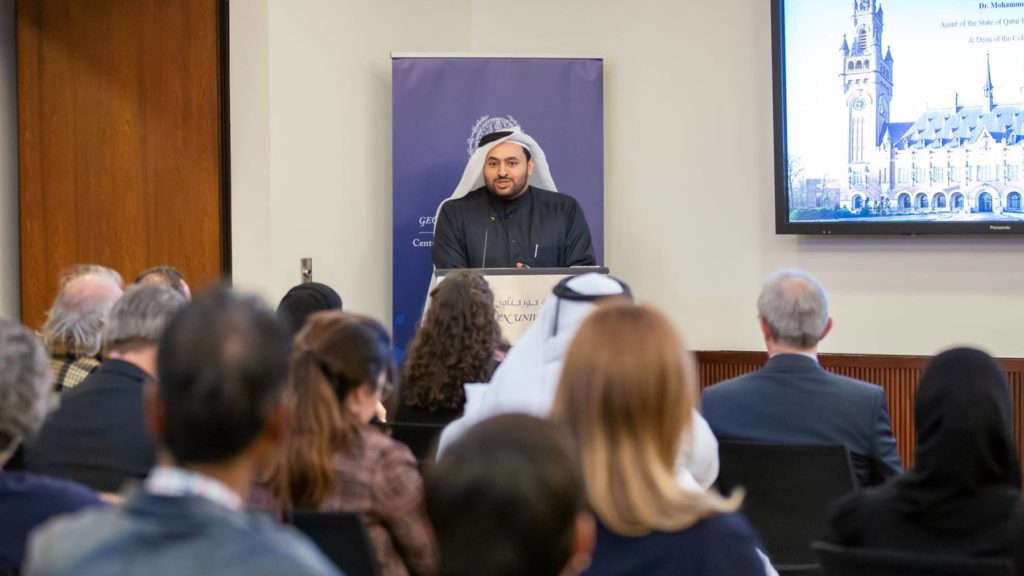Qatar Suing on Unlawful Breach of Sovereignty, Treaty Violations in International Courts Says Qatar University Law Dean at Georgetown Research Center Event

The legality of the boycott and sanctions placed on Qatar by blockading countries was the focus of a recent talk at the Center for International and Regional Studies (CIRS) at Georgetown University in Qatar (GU-Q), a Qatar Foundation partner institution.
Mohammed Abdulaziz Al-Khulaifi, Dean of the College of Law at Qatar University, spoke to an audience of students, faculty, staff, members of the public, and diplomatic community on “Qatari Cases before International Dispute Settlement Fora,” where he explored current proceedings that the State of Qatar is pursuing through international dispute settlement channels against the four countries involved, on the premise that they are breaching their obligations as signatories of various international treaties.
The measures before the various tribunals include the travel bans, deportations, and land, air, and sea blockade, that adversely affected the human rights of people in all of the nations involved, and represent an unlawful breach of Qatar’s sovereignty, explained Al-Khulaifi.
As a result, he said, the State of Qatar has three major cases currently pending at the International Court of Justice (ICJ). These cases are based on treaties signed by one or more of the blockading countries, including the International Convention on the Elimination of All Forms Racial Discrimination (CERD), the Convention on International Civil Aviation, and the International Air Services Transit Agreement.
Speaking on the targeting of Qatar’s civilian airline industry, Al-Khulaifi said: “Those are clear violations of the Convention on International Civil Aviation.” There are also two inter-state complaints before the CERD Committee and two cases concerning trade that are currently pending before the World Trade Organization (WTO).
Discussing the case filed by Qatar against the UAE under the CERD Convention, which protects a number of human rights, Al-Khulaifi said: “We believe strongly that the UAE has clearly violated those rights,” pointing to the UAE’s decision to expel Qatari citizens from the UAE based on their national origin. The other blockading countries are not signatories to CERD.
Additionally, Qatar’s legal team requested and received the ICJ’s approval for provisional measures that include reuniting separated families, giving Qataris access to continue their education in the UAE, and access to education records and legal courts and tribunals, in the UAE. Al-Khulaifi said the court’s finding in favor of Qatar was a “clear rebuke of the unlawful discriminatory measures adopted by the UAE.”